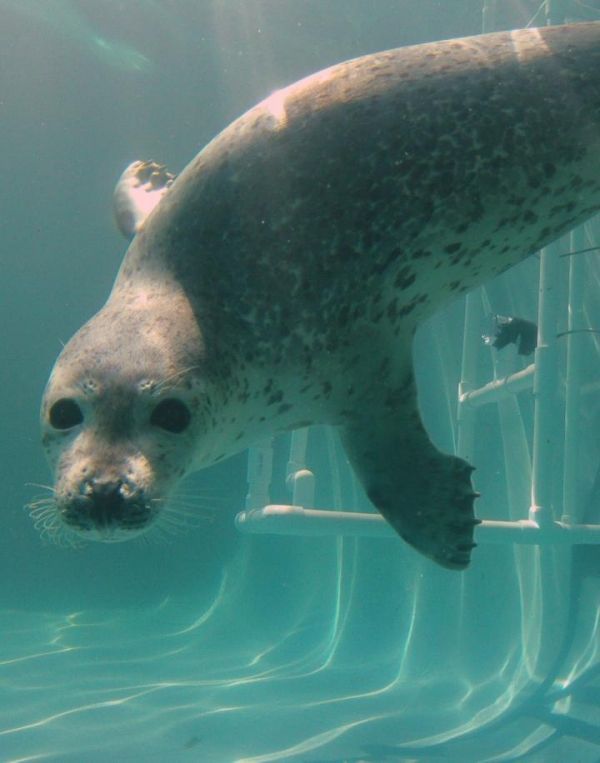Marine mammals are particularly sensitive to noise pollution because they rely on sound for so many essential functions, including communication, navigation, finding food, and avoiding predators. An expert panel has now published a comprehensive assessment of the available science on how noise exposure affects hearing in marine mammals, providing scientific recommendations for noise exposure criteria that could have far-reaching regulatory implications.
Published March 12 in Aquatic Mammals, the paper is a major revision of the first such assessment, published in 2007 in the same journal. Both efforts were led by Brandon Southall, a research associate at the Institute of Marine Sciences at UC Santa Cruz and senior scientist at Southall Environmental Associates.
"One of the things we did in 2007 was to identify major gaps in our knowledge, and we now have considerably more data. We thought there was enough new science to reconvene the panel and revisit these issues," said Southall, who served as director of NOAA's Ocean Acoustics Program from 2004 to 2009.
Read more at University of California - Santa Cruz
Image: A trained spotted seal (Phoca largha) cooperates in an underwater hearing test at Long Marine Laboratory, UC Santa Cruz. (NMFS permit 18902) (Credit: B. Wakefield)


